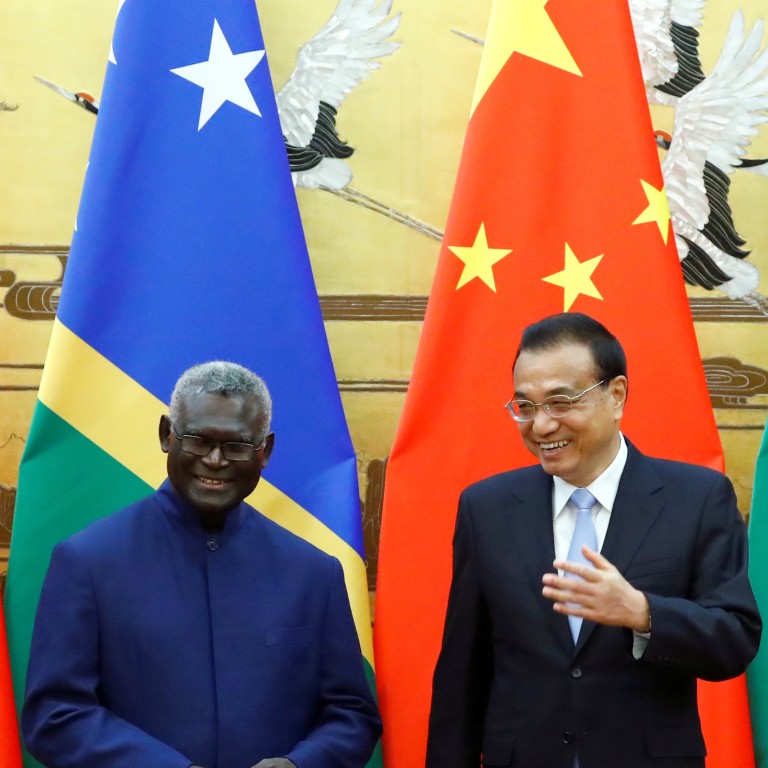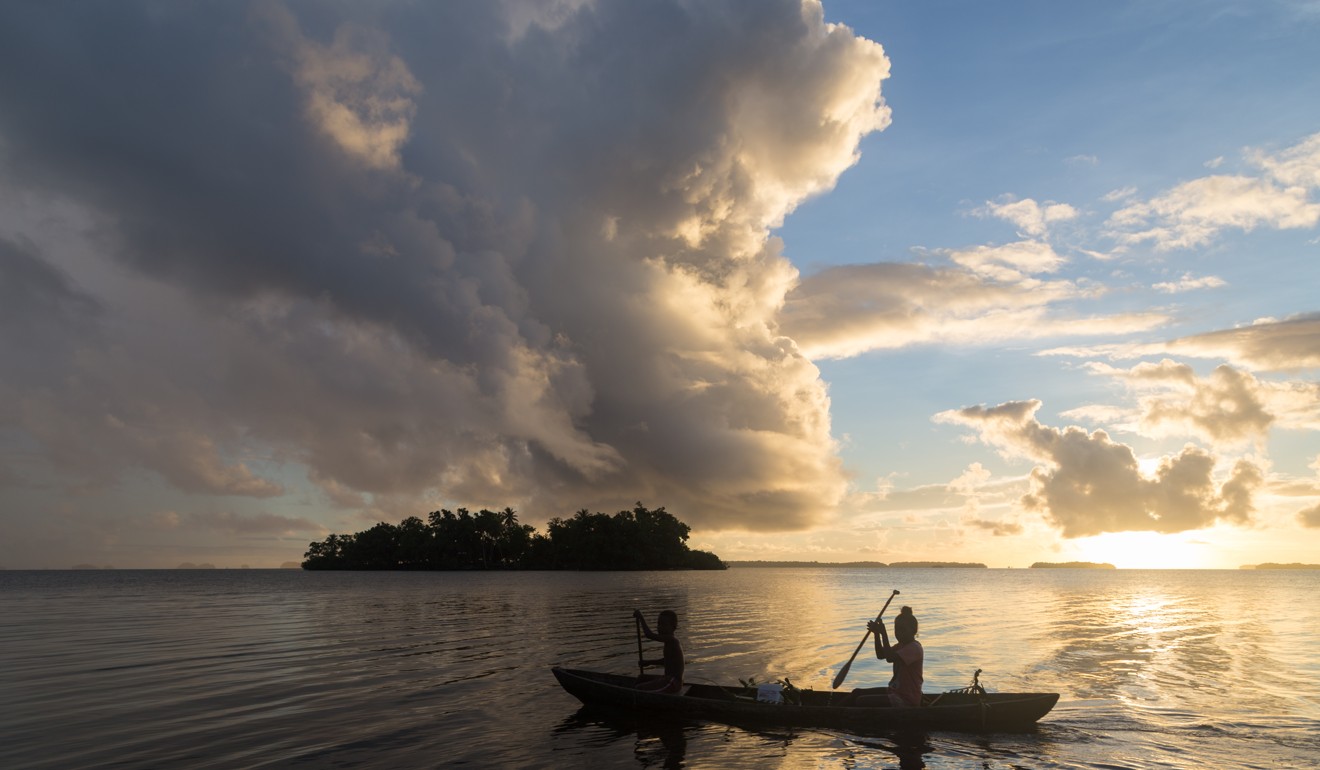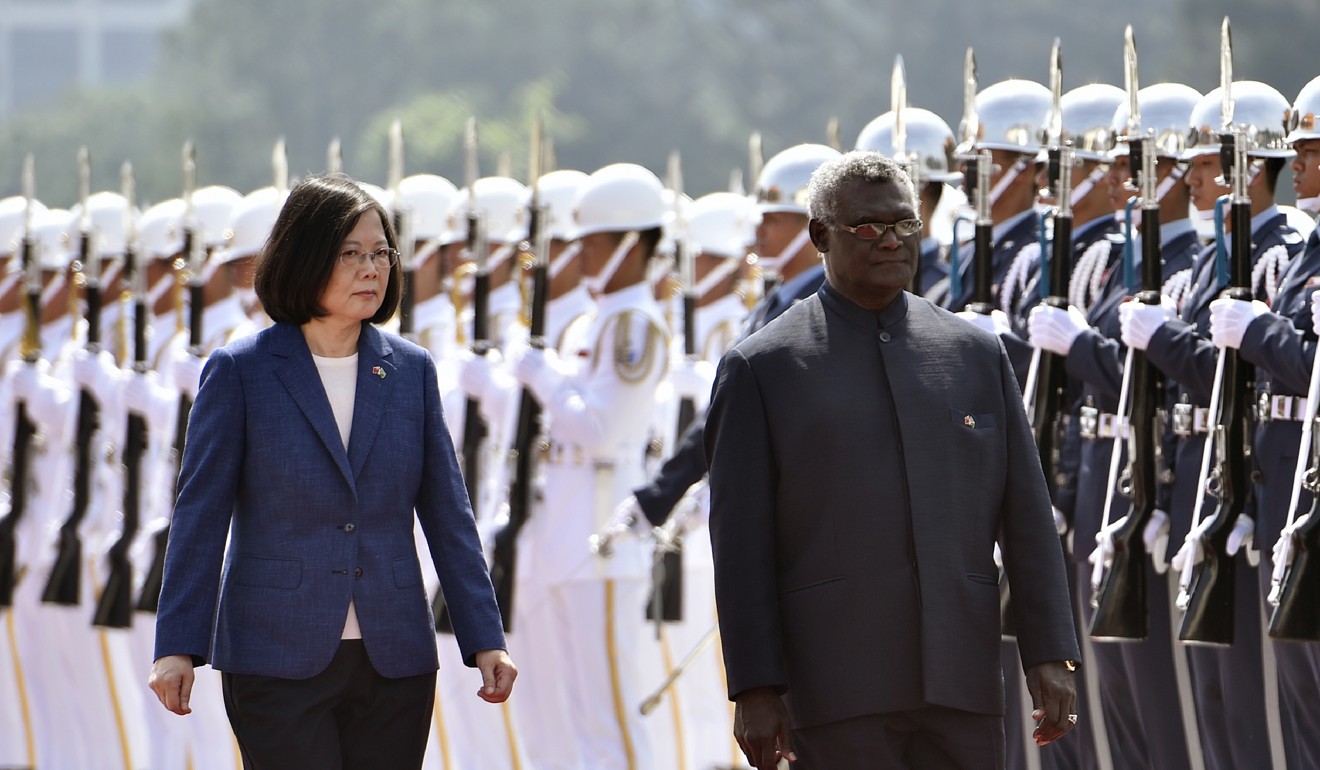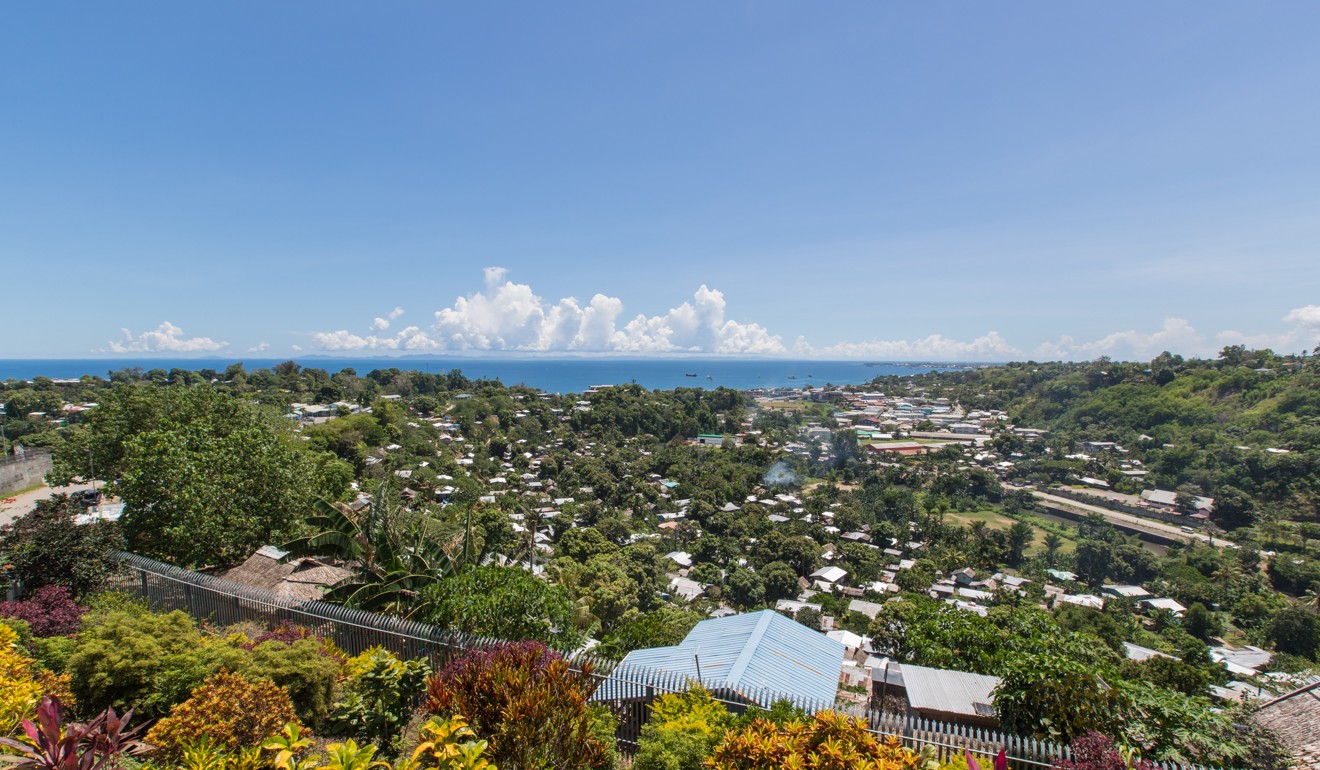
The Solomon Islands switched recognition to Beijing – but its largest province still favours Taiwan
- The September switch is not all rosy, with pro-Taipei sentiment lingering throughout the country, particularly in Malaita
- The US is interested in funding infrastructure in the province, complicating existing political divisions in the Pacific nation
The decision in September marked the loss of the most populous of Taipei’s few remaining allies in the Pacific, drawing praise from Beijing and a sharp rebuke from Washington.
Malaita Premier Daniel Suidani suggested the dozen or so former combatants – who took part in the ethnic violence that convulsed the archipelago from 1998-2003, prompting the intervention of Australian troops and police – had likely been sent on behalf of the Solomon Islands national government to intimidate the province into supporting the switch.
Choose Beijing over Taipei, Solomon Islands task force recommends
Months after hailing the switch as being “on the right side of history”, Prime Minister Manasseh Sogavare has struggled to overcome deep-rooted mistrust of Beijing in Malaita – which has a history of separatist sentiment, and which Washington has targeted for renewed engagement despite failing to convince Honiara to stick with Taipei.

“The way the national government has been handling this issue in terms of proper consultations, in terms of informing the people, has not been very clear. It forces the question of whose interest it is really following,” said Celsus Talifilu, an adviser to Malaita Premier Suidani.
“Many leaders in the provincial government do not appreciate getting involved with a powerful country like China, which has a different government system, which is not a democratic nation.”
Sogavare’s spokesman did not respond to requests for comment.
China’s ‘great friendship’ with Micronesia leaves US with Pacific headache
“I think broadly the internal situation is cause for concern in the sense that we don’t want this to cause internal instability,” said Transform Aqorau, Solomon Islands’ incoming ambassador to the United Nations and the US.
“The strongest country in the world and the second strongest economy competing against each other for space – inevitably we are going to be drawn into that kind of dynamic,” he said. “It’s up to us to ensure that we manage that dynamic.”
Jian Zhang, associate professor at UNSW Canberra at the Australian Defence Force Academy, said Beijing and Washington’s efforts to court the Solomons were already aggravating internal divisions.
“China’s influence will make an already complicated political situation more uncertain and unstable,” he said. “US support and investment in Malaita province could make the situation even more difficult.”

Chinese President Xi Jinping has made it clear that the Solomon Islands’ strategic location and United Nations membership make it a valuable partner, and has promised to invest in the country to develop its economy, combat climate change and boost its tourism industry.
In October, just two weeks after the switch, Prime Minister Sogavare visited Beijing to sign cooperation agreements on diplomacy, economic development, technology and education. The China State Railway Group proposed US$825 million to develop one of the nation’s richest mineral resources, the Gold Ridge gold mine in Guadalcanal, the island that is home to the capital Honiara.
Explained: how Taiwan’s Pacific allies are being wooed by mainland China
China’s donation of US$1.6 billion to the Pacific since 2011 makes it the second largest source of aid to the region in the past decade, behind Australia, according to the Lowy Institute think tank in Sydney.
Washington and its regional allies have expressed interest in funding a deep water port in Malaita, home to more than a quarter of the Solomon Islands’ 650,000 people. The World Bank, Australia and New Zealand are also involved in the project to develop Bina Harbour, which will include supporting infrastructure such as roads.
Officials from USAID and the US state and defence departments visited the province to discuss infrastructure projects earlier this year, and Talifilu, the adviser to the premier, said a follow-up visit was expected in February.

Talifilu said he had nevertheless heard of concerns in Washington about the perception of American engagement with Malaita fuelling separatist sentiments, citing discussions with associates involved in talks with the US side.
“They would not like to see that as an issue,” he said. “And our response would be that I think it is more likely that if there is not development, then there is the aspiration [to become independent].”
Gerard Finin, professor of city and regional planning at Cornell University in New York, said ultimately the matter of the development of Bina Harbour – and who is involved – would rest on the consent of the national government.
“Each province can’t negotiate its own diplomatic relations,” he said.
US-China tech war’s new battleground: undersea internet cables in the Pacific
Malaita has had a turbulent relationship with the central authorities since the Solomon Islands, where more than 60 languages are spoken, gained its independence from Britain in 1978. The province, which remains chronically underdeveloped, has been home to independence movements since at least the 1940s, and its parliament passed a resolution in favour of self-rule in 2015.
“Our central government has failed the people of Malaita since the independence of Solomon Islands until today,” said Lesley Sanga, a former newspaper journalist from the province. “All their promises of national projects for Malaita were just ghosts that never came into reality.”
The divisions have widened since the diplomatic switch as Malaita in October vowed not to accept any Chinese development loans, and announced it would formally consider independence if there was popular support.

In November, Malaita Premier Suidani – who has claimed to have been offered bribes by government MPs to support the diplomatic change – accused Beijing of ordering Prime Minister Sogavare to ensure “Malaita bows down to China”. Earlier this month, the Solomon Star newspaper reported it had received “leaked information” indicating that the central government was plotting to oust Suidani by bribing local MPs to withdraw their support for the premier.
“We don’t want involvement in things that at the end of the day will jeopardise us, our resources, make our people worse off than better off,” said Talifilu, explaining that many Malaitans viewed China with suspicion and believed it sought to dominate the Solomon Islands by saddling it with loans it would not be able to pay back.
US-China battle for dominance extends across Pacific, above and below the sea
Kenneth Sagupari, who earlier this year unsuccessfully ran for election in the Solomon Islands’ Central Province, said many people across the country, not just Malaita, opposed the decision to switch from Taiwan.
“Most people of other provinces also do not accept it but cannot do much because at the end of the day, the government has the power to deliver services for the people’s needs,” Sagupari said.
While acknowledging that the Solomon Islands would inevitably feel some pressure from the growing competition between Washington and Beijing, incoming envoy Aqorau said the country ultimately stood to gain from both.
“I don’t think it’s a question about pull – it’s a question of the things that China and the US are willing to support,” Aqorau said. “At the end of the day, it’s up to the Solomon Islands and Solomon Islanders to be able shape the relationship that they have with the US and China.””


